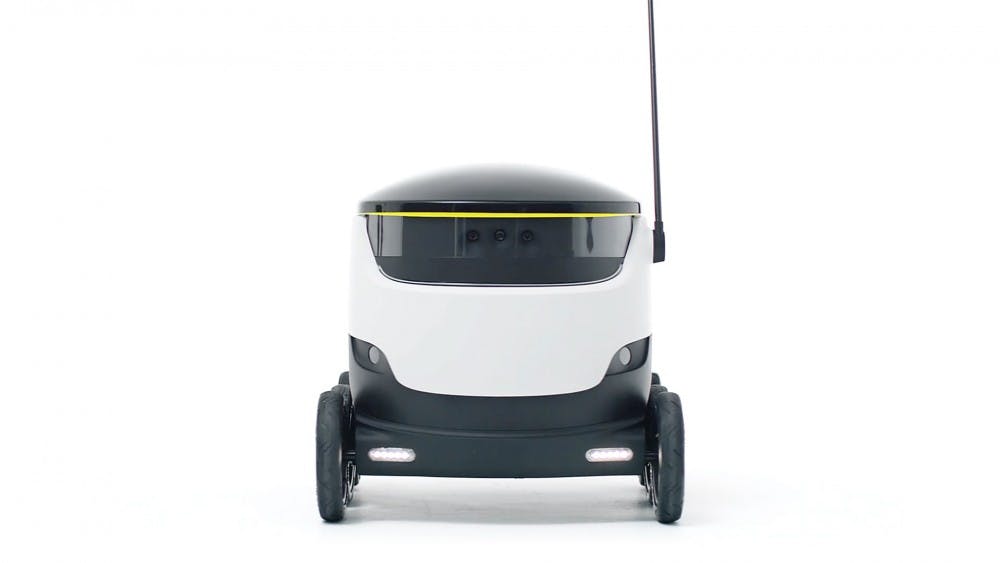Skype’s co-founders Ahti Heinla and Janus Friss have launched Starship Technologies, a company set on solving the “last mile problem” of delivery, the voyage from delivery hubs to your front doorstep. Their solution to that problem is an adorable six-wheel robot that vaguely resembles something out of Wall-E.
Experts say that at least 28% of transportation costs are racked up during the last mile of a package’s trip. Companies such as Google and Amazon have wanted to overcome this by using drones, but their usage is classified as an Unmanned Aircraft System by the Federal Aviation Administration. This forbids drones from being used in populated areas along with many other regulations that would be cumbersome for delivery purposes.
Helina and Friss believe that their delivery robots could be cheaper and safer than the drone solution from Google and Amazon. Helina said, "They travel at the slow speed of four miles per hour--a brisk walking pace." She then goes on to say, "They travel on pavements sidewalks, blending safely in with pedestrian traffic."
Starship Technologies claims that its robot can detect objects, change speeds, stops to cross streets, and talk to any human comes across. Human operators can take over if anything goes wrong. Robots come with a camera for a manual operator to view out of, microphones, speakers and a GPS tracker. In terms of ability to transport packages, the robots are capable of holding the equivalent weight of about two grocery bags within five to 30 minutes of a local store and need less energy than most light bulbs. Customers would be able to get their things from inside of the robot with a mobile app. Otherwise, the contents are locked.
Concerns arise around the issue of preventing vandalism. The GPS tracker, microphone and camera may detour potential thefts, but they do little to prevent others who simply wish to do harm to the thing.
Starship Technologies plans to have its little robot in testing by 2016 in the United States, United Kingdom and other countries. By 2017, the company wants to have launched commercially.
-----
Source: CNN
Image: Starship Technologies
Delivery robots may come to replace delivery trucks





